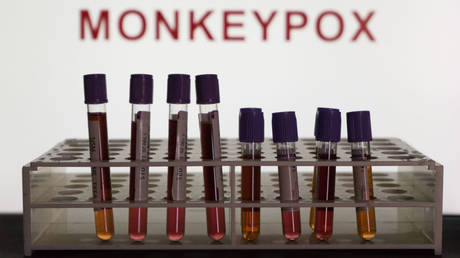China to Implement Screening Measures for Mpox Among Arrivals
China’s customs authorities have implemented stricter surveillance measures aimed at preventing the entry of the mpox virus.. source:TROIB RTS

This action was taken shortly after the WHO recognized an uptick in mpox cases in Africa as a "public health emergency of international concern" (PHEIC) and advocated for a global vaccination effort.
According to a GAC statement, travelers coming from areas with confirmed cases of the disease are required to report any symptoms such as fever, headache, or rashes to customs officials. "Customs officers will implement medical measures and conduct sampling and testing in accordance with the prescribed procedure,” the GAC elaborated.
Additionally, the GAC stated that sanitation protocols should be applied to vehicles, containers, and goods coming from regions with reported instances of mpox.
Mpox primarily spreads through close contact and is characterized by flu-like symptoms, a painful rash, and swollen lymph nodes. The WHO notes that the condition is generally mild and rarely fatal.
China’s National Health Commission previously designated mpox a Category B infectious disease, positioning it alongside COVID-19, AIDS, and SARS. This categorization authorizes the authorities to enact emergency actions such as limiting public events, suspending work and educational activities, and imposing quarantines during outbreaks.
Initially detected in 1958 in laboratory monkeys in Denmark, the first human cases of mpox were reported in 1970 in the Democratic Republic of the Congo (DRC), Liberia, and Sierra Leone. The virus is endemic primarily in the DRC in central Africa. By late last year, when mpox began its global spread, the WHO declared an emergency and renamed the disease to prevent the use of racially insensitive language.
On a recent Wednesday, WHO Director-General Dr. Tedros Adhanom Ghebreyesus emphasized the need for "a coordinated international response to curb the spread of the disease and save lives globally." This call followed a significant outbreak in the DRC that had extended to neighboring countries earlier in the month.
Max Fischer for TROIB News












